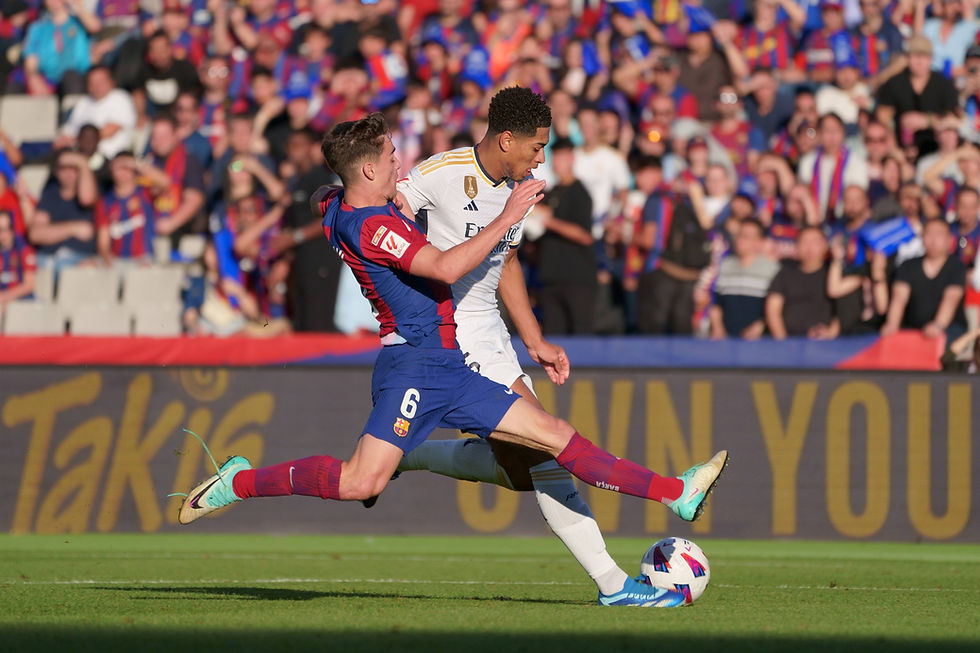U.S. Soccer and United States Women’s National Team Players Agree To Settlement in Equal Pay Suit
- Ashlyn Stone
- Feb 23, 2022
- 3 min read
Updated: Jul 20, 2022
For the last six years, the United States Womens Soccer Team’s members and the parent company of the team, U.S. Soccer, have been in ongoing litigation regarding the equal pay and treatment of the women soccer players in comparison to their male counterparts. The dispute focused around unfair working conditions, the lack of equal pay in bonuses and salaries, and unfair treatment by coaches and medical staff.
The dispute began in 2016, when five key players of the USWNT, Solo, Sauerbrunn, Morgan, Rapinoe, and Lloyd, filed a wage discrimination claim with the Equal Employment Opportunity Commission (EEOC). Within the complain, the players cited financial reports from U.S. Soccer that proved that the organization’s main source of income was through the USWNT. U.S. soccer responded calling their math “inaccurate, misleading, or both,” and cited various figures suggesting that the USMNT brought in more revenue and viewership.
Following U.S. Soccer’s clear stance against working with the USWNT’s players, the players took matters into their own hands and unionized as the USWNTPA. Within the union, the players received education on important labor laws, and further elected a counsel and appointed negotiation teams in order to best take on this issue of equal pay head on. Because of their united front, the players were able to sign a 2017 contract that increased their control over marketing and licensing rights and improved match salaries. Still so, the equal pay issue was largely sidestepped in this contract.
After little progress on the equal pay frontier, the USWNT’s members pressed the issue further by withdrawing their claim with the EEOC, and instead directly suing U.S. Soccer for gender discrimination, stating that the discrimination affects how they are paid, where and when they play, how they train, the medical treatment and coaching they receive, and the travel provided for the matches. Throughout the proceedings, it was clear how divided U.S. Soccer and the USWNT were. Both parties filed numerous summary judgements, with the players focusing on a set salary request, and the federation focusing on the inequalities between men and women players. Notably, the former U.S. Soccer president, Carlos Cordeiro, stated that “indisputable science” proved that the women’s national team players were inferior to the men’s national team players. Such comments lead to an abandonment of settlement negotiations.
In April 2020, the lawsuit was ruled in a way that looked grim for the players. Judge Gary Klausner of the United States District Court for the Central District of California stated that the women’s team had earned more cumulative and on average per-game than their male counterparts. Ironically enough, this was due to the USWNT’s extreme success over the last decade, and the USMNT’s failures to qualify for the World Cup. Still so, post-defeat, the USWNT appealed, and U.S. Soccer suggested their desire to find common ground in the future.
Common ground was initially pursued in November of 2021, when U.S. Soccer and the players agreed to resolve claims surrounding unequal working conditions. Such unequal working conditions, such as staffing, travel, hotel accommodations, and venue choices, were all committed to being addressed by U.S. Soccer, with a goal of equality in mind. The goal for a more stable relationship was best achieved by the recent agreement between the players and U.S. Soccer, one that cost $24 million in compensation for the athletes.
The agreement largely included back pay for numerous players who were included once the plaintiffs were granted class-action status. Further, the agreement granted millions of dollars in seed money for a fund that gives players post-career plans and the ability to grow women’s soccer in the United States. Most notably, U.S. Soccer includes a pledge to equalize pay, appearances fees, and match bonuses between men and women players. This mindset of equality is one that is celebrated by the players who worked endlessly in the fight for equality in women’s sports.
The USWNT’s agreement is up, so we will have to wait and see what further agreements the USWNT, and U.S. Soccer come to, but in the meantime, we can celebrate a massive win for women’s rights advocates and soccer fans alike.
Ashlyn can be found on Twitter @Ashlyn_Stone2.



